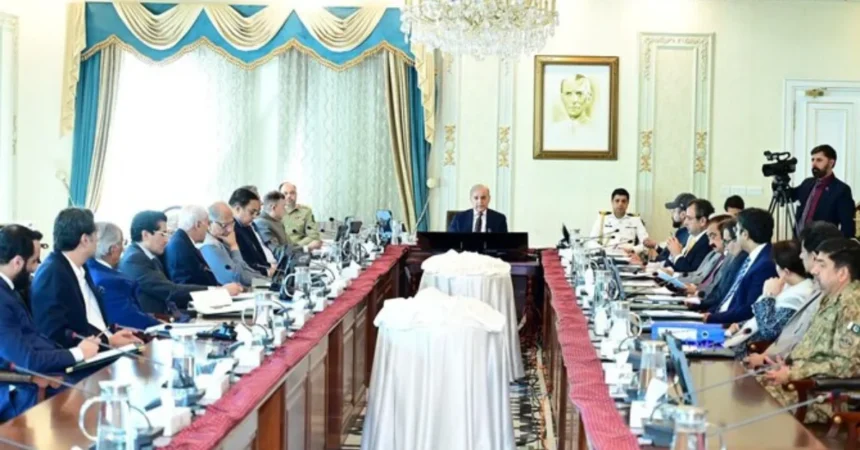Understanding the Current Electricity Costs in Pakistan
Electricity costs in Pakistan have risen sharply over the years, creating a challenging environment for consumers and businesses alike. The recent spike in tariffs, coupled with frequent load shedding, has placed immense pressure on the government to reform the energy sector and alleviate the financial burden on households. High electricity costs have significant implications, affecting not only personal budgets but also hindering economic growth and development.
- Understanding the Current Electricity Costs in Pakistan
- The IPPs Affected by the Termination of Contracts
- Financial Implications of the Decision
- The Role of IPPs in Pakistan’s Energy Landscape
- Government Efforts to Reform the Energy Sector
- Potential Challenges and Risks Ahead
- Importance of Public Communication
- Looking Ahead: Sustainable Energy Solutions
The increase in electricity costs can be attributed to various factors, including outdated infrastructure, inefficient power generation methods, and contractual arrangements with IPPs that have often favored these private producers over consumers. According to a report by the Pakistan Bureau of Statistics, electricity tariffs have increased by over 40% in the last five years, leading to many households facing unsustainable energy bills. This trend has prompted calls for urgent reforms in the energy sector.
The IPPs Affected by the Termination of Contracts
The decision to terminate contracts specifically affects five key IPPs: Lalpir Power Limited, HUBCO (Hub Power Company Limited), Rousch Power Limited, Saba Power, and Atlas Power. These companies have operated under contracts that have been deemed to significantly contribute to inflated electricity tariffs. By canceling these contracts, the government aims to pave the way for a more competitive energy market that prioritizes consumer interests and curtails excessive pricing.
The contracts with these IPPs have often included terms that are unfavorable to the public, such as take-or-pay clauses that guarantee payments to the producers regardless of actual electricity generation. This has resulted in consumers shouldering the costs of excess capacity, leading to unsustainable prices. The government’s move to terminate these contracts reflects a commitment to reform the energy sector and improve pricing structures for consumers.
Financial Implications of the Decision
The financial implications of this decision are profound. The anticipated annual savings of Rs60 billion for consumers will have a substantial impact, particularly in a country where many families struggle with basic living expenses. This financial relief can be directed towards essential needs, such as food, education, and healthcare, thereby improving overall living standards.
Moreover, reducing the financial burden on the national treasury is crucial for stabilizing Pakistan’s economy, which has faced multiple challenges, including high inflation and a growing foreign debt burden. The International Monetary Fund (IMF) has repeatedly emphasized the need for fiscal reforms to ensure long-term economic stability. By addressing the contracts with IPPs, the government is not only looking to lower electricity costs for consumers but also seeking to improve its fiscal health.
The Role of IPPs in Pakistan’s Energy Landscape
Independent Power Producers have played a crucial role in meeting Pakistan’s energy needs over the years. They were introduced to attract private investment and enhance energy supply, particularly during periods of acute power shortages. However, the reliance on IPPs has also raised concerns about their pricing structures and overall impact on the energy market.
Critics argue that the agreements with IPPs have often been skewed in favor of the producers, leading to excessive costs for consumers. A study by the National Electric Power Regulatory Authority (NEPRA) indicates that IPP contracts have, in many cases, resulted in higher electricity prices compared to publicly generated power. The government’s decision to terminate these contracts is a recognition of the need for reform in the energy sector. By renegotiating or canceling unfavorable contracts, the government aims to create a more balanced energy market that protects consumer interests and fosters competition.
Government Efforts to Reform the Energy Sector
The decision to end contracts with five IPPs is part of a broader effort by the Pakistani government to reform its energy sector. In recent years, there has been an increasing call for a comprehensive review of energy policies, emphasizing transparency, accountability, and efficiency. The government has acknowledged that the energy sector requires significant restructuring to meet current demands without placing undue financial burdens on consumers.
The government’s commitment to reforming the energy sector is vital for restoring public trust. By addressing the systemic inefficiencies that have plagued the sector, the government can signal its determination to create a more equitable energy landscape. This reform is not just about reducing electricity costs; it is also about building a sustainable energy future for Pakistan.
Potential Challenges and Risks Ahead
While the decision to terminate contracts with these IPPs is a significant step forward, it is not without challenges. Transitioning away from these contracts could lead to temporary disruptions in electricity supply as the government works to implement alternative solutions. Stakeholders, including consumers and businesses, may experience initial setbacks during this transition period.
There is also the risk of legal challenges from affected IPPs, which may complicate the process. Some IPPs could argue that the termination of contracts violates terms agreed upon in previous negotiations, potentially leading to prolonged legal battles. The government must navigate these challenges carefully to avoid further straining the energy supply and to maintain public confidence in its ability to manage the energy crisis. Addressing the potential legal ramifications and ensuring a smooth transition will be crucial for the success of this initiative.
Importance of Public Communication
Effective communication with the public is paramount as the government moves forward with this initiative. Consumers must understand the rationale behind the termination of IPP contracts and the anticipated benefits of this decision. Transparency regarding the process and its potential outcomes will be essential for maintaining public support.
Engaging with stakeholders, including civil society organizations and business communities, can facilitate a more inclusive dialogue about the future of electricity costs in Pakistan. By actively seeking input and addressing public concerns, the government can foster a sense of ownership among consumers regarding the reforms. Public forums, town hall meetings, and social media campaigns can serve as platforms for disseminating information and gathering feedback.
Looking Ahead: Sustainable Energy Solutions
As the Pakistani government seeks to navigate the complexities of the energy sector, there will likely be an increased focus on exploring alternative energy sources and sustainable practices. Investing in renewable energy technologies, such as solar, wind, and hydropower, can play a critical role in stabilizing electricity costs in the long term. Pakistan has vast potential for solar and wind energy, given its geographic conditions, and harnessing these resources can significantly reduce dependence on costly fossil fuels.
Diversifying the energy mix and reducing reliance on traditional power producers can enhance energy security and independence. Additionally, embracing innovative technologies and energy-efficient practices can mitigate the impact of rising energy costs on consumers, ultimately leading to a more sustainable energy future for Pakistan.
The decision to terminate contracts with five IPPs marks a pivotal moment in Pakistan’s efforts to address soaring electricity costs. While challenges remain, this strategic move reflects a commitment to reforming the energy sector for the benefit of consumers and the economy. Continued vigilance and proactive measures will be necessary to ensure that these changes lead to a more sustainable and affordable energy future for Pakistan.
#ElectricityCosts #PakistanEnergy #IndependentPowerProducers #ElectricityReform #EnergySavings #PakistanEconomy #GovernmentPolicy #ConsumerProtection #EnergySectorReform







